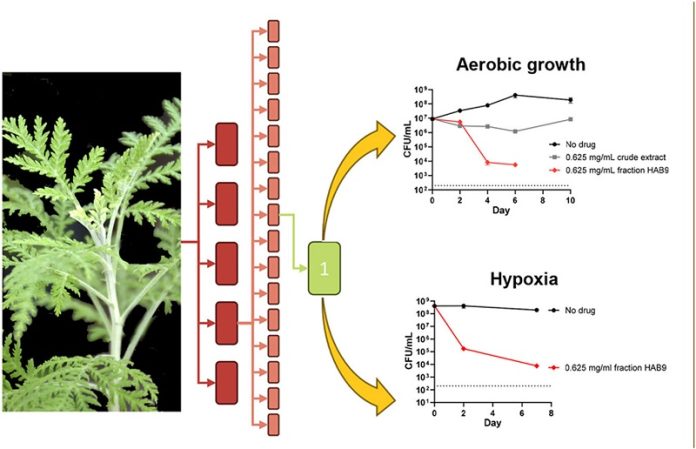
A compound found in African wormwood, a plant used for thousands of years in traditional medicine, could help fight tuberculosis (TB), according to a new study published in the Journal of Ethnopharmacology.
Researchers, co-led by a team from Penn State University, discovered that this compound, called O-methylflavone, has the ability to kill the bacteria that cause TB, both in its active state and its dormant, more resistant form.
Tuberculosis, caused by the bacteria Mycobacterium tuberculosis (Mtb), is one of the world’s deadliest infectious diseases, with about 10 million cases and 1.5 million deaths globally each year.
Though there are effective treatments for TB, they can be long and difficult, especially when dealing with drug-resistant strains.
A standard course of antibiotics lasts six months, but for drug-resistant TB, treatment can extend to two years, making it costly and time-consuming.
One of the challenges in treating TB is that the bacteria can switch between two forms in the body.
When it’s active, the bacteria grow and replicate, but under stress—such as when attacked by antibiotics or the immune system—it can enter a “hibernation” state.
In this dormant state, the bacteria become much harder to kill. This is why finding compounds that target both forms of the bacteria is crucial for effective treatment.
Researchers have known for centuries that African wormwood, a type of Artemisia plant, has medicinal properties.
It has traditionally been used to treat coughs, fevers, and other ailments, and more recently, studies in Africa have suggested it could be useful in treating TB. The Penn State team wanted to investigate which specific compound in the plant was responsible for its anti-TB effects.
The researchers took an extract of the African wormwood plant and divided it into simpler chemical fractions.
They then tested each fraction against the TB bacteria, looking for any that showed strong antibacterial activity.
Using machine learning, they were able to narrow down the most effective fractions and identify the compound O-methylflavone, which could kill both active and dormant TB bacteria.
While this compound isn’t potent enough on its own to serve as a direct treatment for TB, it offers a promising foundation for developing new drugs.
“This compound may serve as a basis for designing stronger, more effective drugs,” said Joshua Kellogg, co-author of the study. He added that African wormwood likely contains other compounds with similar properties that could also be useful in fighting TB.
The researchers are optimistic that with further study, African wormwood could lead to new, more powerful treatments for tuberculosis.
If you care about wellness, please read studies about nutrients that could combat inflammation in older people, and essential foods for healthy aging.
For more health information, please see recent studies about the link between processed foods and chronic diseases, and a simple diet change for a healthier life after 65.





